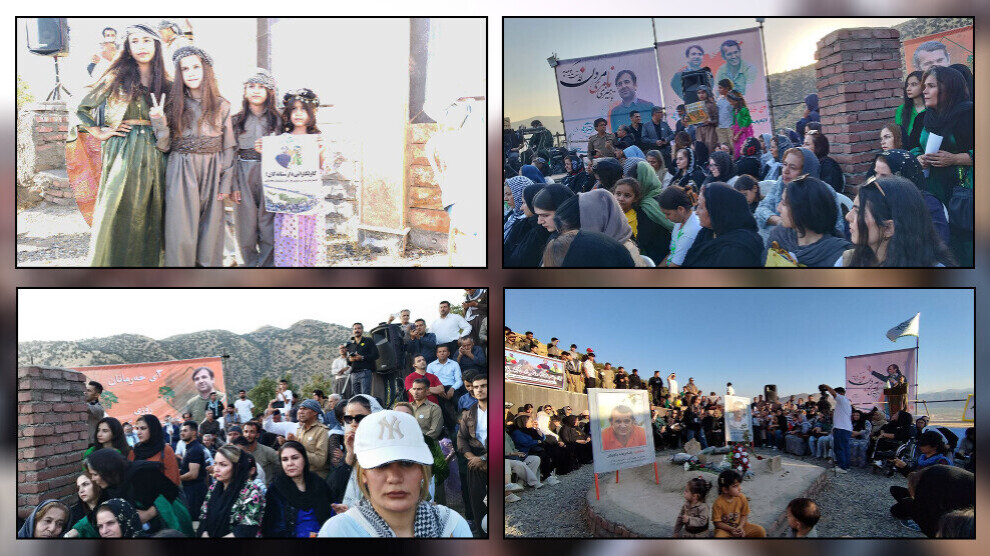Mariwan honors environmental victims, demands protection of nature
On the seventh anniversary of the Mariwan environmental disaster, participants highlighted women’s role in protecting nature, urged institutional accountability, and called for stronger action against environmental destruction in Kurdistan.

Soma Barzkar
Mariwan — In the summer of 2018, fires broke out in the mountains near Mariwan in Eastern Kurdistan. While trying to extinguish the flames, several volunteers and environmental activists lost their lives.
To mark the seventh anniversary of the tragedy, the Chya the Green Organization held a memorial at the Dar Siran cemetery to honor those who died in the Zagros forest fires. Families of the victims, environmental activists, artists, and volunteers attended, alongside environmental groups from Urmia, Ilam, Kamiran, Sine, and Diwandara.
The event honored activists who sacrificed their lives to protect nature while stressing the importance of collective efforts to prevent future disasters. Participants underscored the vital role of civil society in resisting the structural destruction of the environment.
Speakers warned that burning pastures, destroying plant and animal species, and restricting environmental activists pose grave threats to Eastern Kurdistan’s ecological future. They called for stronger cooperation, accountability from responsible institutions, and widespread public awareness.
Bond between society and nature
The ceremony also emphasized the historical and social connection between women and nature. Organizers highlighted women’s pivotal role not only in protecting natural resources but also in maintaining social cohesion and restoring hope after crises. Women, they noted, often lead recovery efforts in the wake of fires, symbolizing resilience and the continuity of life.
One of the most moving moments came when mothers who lost their sons defending freedom and nature were honored. Their presence reaffirmed social solidarity and the continuation of civic struggle.
Accountability and responsibility
Speakers also pointed to the deliberate nature of some fires and the targeted destruction of natural resources. They stressed that these are not mere natural disasters but the result of systemic neglect and failure. Institutions, they said, must provide resources to fight fires, intervene directly in crises, and take responsibility for such disasters. They also urged basic fire-fighting training for activists, prevention of unqualified employment, and stronger environmental education in schools.
The program included statements from associations, tributes to families, poetry readings, and artistic contributions dedicated to the activists. Beyond honoring past sacrifices, the event became a renewed call for responsible governance, youth education, and the advancement of women’s role in environmental movements—a commitment organizers consider vital to Kurdistan’s survival and ecological security.
